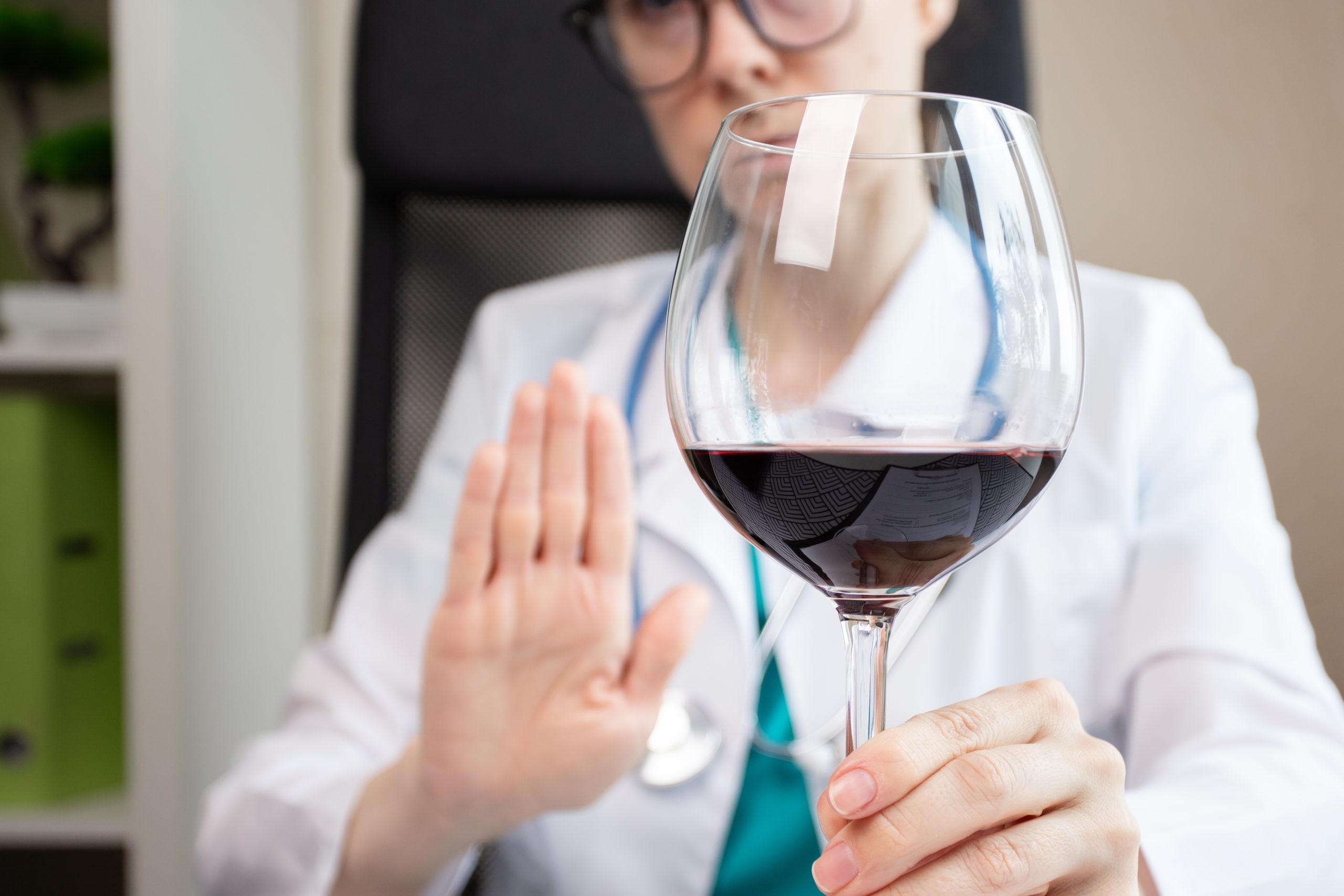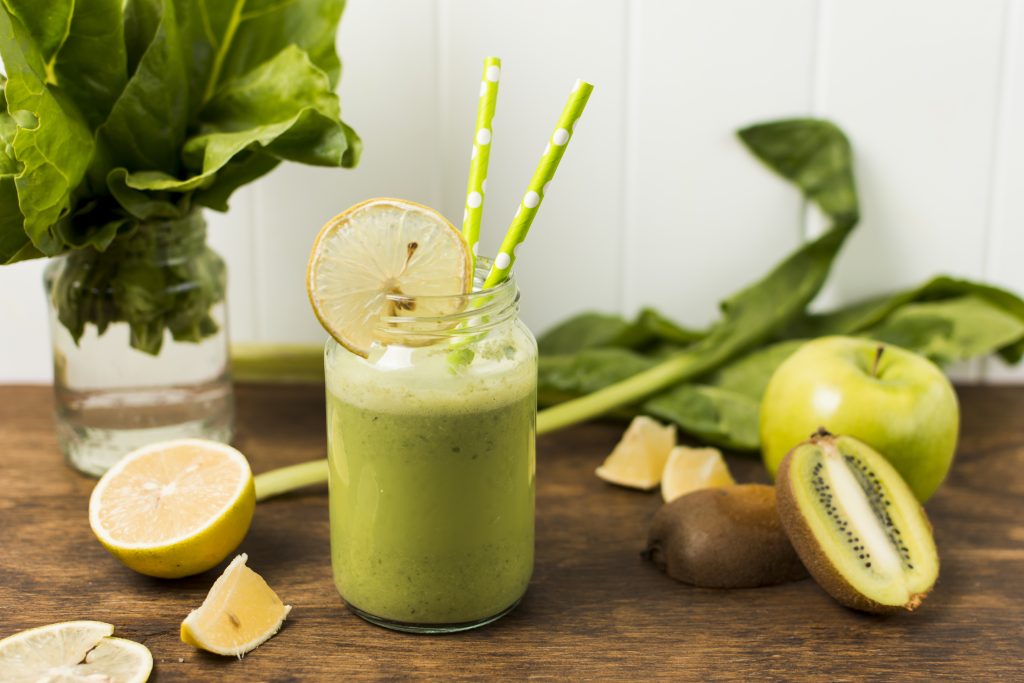Table Of Contents
-
Key Highlights
-
Understanding Semaglutide and Its Effects on the Body
- How Semaglutide Influences Alcohol Cravings and Consumption
- Is It Safe to Drink Alcohol While on Semaglutide?
- Potential Side Effects of Combining Alcohol and Semaglutide
- Expert Recommendations and Practical Tips for Patients
-
Frequently Asked Questions About Semaglutide and Alcohol
-
Conclusion: Making Informed Decisions About Alcohol and Semaglutide
-
References
If you’re taking semaglutide for weight loss or diabetes management, you might be wondering whether it’s safe to enjoy an occasional drink. Can you toast at your friend’s wedding? Is a glass of wine with dinner off-limits? These are common questions, and the answers aren’t always straightforward—especially with emerging research showing that semaglutide might actually affect how you experience alcohol.
This comprehensive guide examines the interaction between semaglutide and alcohol, drawing from the latest clinical studies and expert medical guidance. We’ll explore the safety profile, potential side effects, fascinating research on how semaglutide influences alcohol cravings, and practical recommendations to help you make informed decisions about alcohol consumption while on this medication.
Key Highlights
- No serious interactions reported: Clinical studies show no dangerous adverse reactions between semaglutide and alcohol, though caution is still advised.
- Reduced alcohol cravings: Research demonstrates that semaglutide may decrease alcohol consumption and cravings in both social drinkers and those with alcohol use concerns.
- Moderation is key: Moderate alcohol consumption is generally not contraindicated, but heavy drinking should be avoided due to potential side effect amplification.
- Side effect considerations: Alcohol can worsen common semaglutide side effects including nausea, dizziness, and gastrointestinal discomfort.
- Altered alcohol effects: Some patients report that alcohol feels different on semaglutide—less sedating or stimulating than before treatment.
- Blood sugar concerns: For diabetes patients, alcohol can affect blood glucose levels, requiring careful monitoring when combined with semaglutide.
- Consult your provider: Individual responses vary significantly, making personalized medical guidance essential for your specific situation.
Understanding Semaglutide and Its Effects on the Body
Before diving into the alcohol question, it’s helpful to understand what semaglutide does in your body. Semaglutide is a GLP-1 receptor agonist—a medication that mimics a naturally occurring hormone called glucagon-like peptide-1. This hormone plays crucial roles in regulating appetite, blood sugar, and metabolism.
When you take semaglutide, it binds to GLP-1 receptors throughout your body, but particularly in three key areas:
- The brain: Semaglutide acts on the hypothalamus and other appetite control centers, reducing hunger signals and increasing feelings of fullness. Interestingly, GLP-1 receptors are also present in brain regions involved in reward processing—the same areas affected by alcohol and other substances.
- The stomach: The medication slows gastric emptying, meaning food (and potentially alcohol) stays in your stomach longer. This contributes to prolonged satiety but can also affect how quickly substances enter your bloodstream.
- The pancreas: Semaglutide stimulates insulin release when blood sugar is elevated and suppresses glucagon secretion, helping stabilize blood glucose levels—particularly important for people with type 2 diabetes.
Semaglutide is approved under the brand names Ozempic (for type 2 diabetes) and Wegovy (for weight management), both administered as once-weekly injections. The typical maintenance dose for weight loss is 2.4 mg weekly, reached gradually over several months.
How Semaglutide Influences Alcohol Cravings and Consumption
One of the most intriguing recent discoveries about semaglutide is its apparent effect on alcohol consumption. This wasn’t what researchers were looking for initially, but the evidence has become too consistent to ignore.
Clinical Evidence of Reduced Alcohol Intake
A landmark 2025 clinical trial investigated low-dose semaglutide’s effects on alcohol self-administration in regular drinkers. The results were striking: participants who received semaglutide showed significantly reduced alcohol craving scores over the 9-week study period compared to those receiving placebo.
The study used standardized alcohol craving questionnaires and found that semaglutide treatment led to measurable decreases in both the desire to drink and actual alcohol consumption. Importantly, no serious adverse events or treatment discontinuations occurred due to the combination of semaglutide and alcohol, suggesting a favorable safety profile.
Additional research published in PMC examined broader patterns of GLP-1 receptor agonist use and alcohol intake. The findings consistently showed that people taking these medications—including semaglutide—tended to drink less alcohol than before starting treatment. Some experienced a 20-30% reduction in weekly alcohol consumption, even when they hadn’t been trying to cut back.
Why Does This Happen? The Neuroscience Behind It
The mechanism isn’t entirely understood, but researchers have several theories. GLP-1 receptors exist in brain regions associated with reward processing and addiction, including the nucleus accumbens and ventral tegmental area. When semaglutide activates these receptors, it may modulate dopamine signaling—the same neurotransmitter system that alcohol affects.
In simpler terms, alcohol’s “rewarding” effects might be dampened when you’re on semaglutide. This doesn’t mean alcohol becomes unenjoyable, but rather that the compulsive drive to drink may decrease. Researchers writing in Science have suggested this could have implications for treating alcohol use disorder, though more research is needed.
Patient surveys add another layer to this picture. A Nature study found that approximately 40% of semaglutide users reported altered effects from alcohol—some described feeling less intoxicated at their usual dose, while others noticed reduced desire for that second or third drink. These subjective reports align with the objective clinical findings.
Is It Safe to Drink Alcohol While on Semaglutide?
Now for the central question: can you drink alcohol on semaglutide? The answer is nuanced but generally reassuring for those who drink in moderation.
What the Safety Data Shows
According to comprehensive safety analyses, there are no serious contraindications between semaglutide and alcohol consumption. The prescribing information for semaglutide does not list alcohol as an absolute contraindication, and clinical trials have not identified dangerous pharmacological interactions between the two substances.
A 2025 PubMed study specifically examined safety and efficacy data from thousands of semaglutide users, including those who consumed alcohol. The researchers found no significant increase in adverse events among moderate drinkers compared to non-drinkers taking semaglutide. This suggests that occasional, moderate alcohol consumption doesn’t create a direct drug interaction that would be medically dangerous.
However—and this is important—the lack of a direct interaction doesn’t mean alcohol and semaglutide are a perfect pairing. Several considerations matter:
Defining "Moderate" Alcohol Consumption
Medical guidelines define moderate drinking as:
- For women: Up to 1 drink per day
- For men: Up to 2 drinks per day
One “standard drink” equals 12 oz of beer (5% alcohol), 5 oz of wine (12% alcohol), or 1.5 oz of distilled spirits (40% alcohol). These are averages—stronger craft beers or wines contain more alcohol per serving.
Heavy or binge drinking (defined as 4+ drinks for women or 5+ for men in a 2-hour period) is not advisable while on semaglutide, both because of potential side effect amplification and because excessive alcohol undermines weight loss efforts.
Potential Side Effects of Combining Alcohol and Semaglutide
While serious interactions are rare, combining alcohol with semaglutide can amplify certain side effects. Understanding these helps you make informed choices about when and how much to drink.
1. Gastrointestinal Distress
Semaglutide’s most common side effects are gastrointestinal: nausea, vomiting, diarrhea, and stomach discomfort. Alcohol is also known to irritate the stomach lining and can cause nausea, especially on an empty stomach or in excess.
When you combine the two, these effects can compound. Many patients report that drinking alcohol while on semaglutide makes them feel nauseous more quickly than before, or that hangovers are notably worse. The slowed gastric emptying caused by semaglutide means alcohol sits in your stomach longer, potentially increasing discomfort.
Practical tip: If you’re going to drink, do so with food in your stomach, stay well-hydrated, and consider drinking less than your usual amount until you understand how your body responds to the combination.
2. Dehydration Risk
Both semaglutide and alcohol can contribute to dehydration. Semaglutide can cause decreased fluid intake (you might not feel as thirsty) and may lead to fluid loss through vomiting or diarrhea. Alcohol is a diuretic, causing increased urination and fluid loss.
The combination increases your risk of dehydration, which can manifest as headaches, dizziness, fatigue, and worsened nausea. This is particularly concerning in hot weather or when exercising.
Practical tip: Drink a full glass of water between alcoholic beverages, and ensure you’re well-hydrated before and after drinking. Consider electrolyte drinks if you’ve been experiencing GI side effects from semaglutide.
3. Blood Sugar Fluctuations
For people with type 2 diabetes taking semaglutide, alcohol presents additional considerations. Alcohol can cause blood sugar to drop, especially if consumed without food. This is because alcohol interferes with the liver’s ability to release glucose into the bloodstream.
While semaglutide helps stabilize blood sugar, the combination of semaglutide’s glucose-lowering effects and alcohol’s potential to cause hypoglycemia requires vigilance. Symptoms of low blood sugar—shakiness, confusion, sweating—can also mimic intoxication, making them easy to miss.
Practical tip: If you have diabetes, always eat when drinking alcohol, monitor your blood sugar before and after drinking, and be aware of delayed hypoglycemia that can occur several hours after your last drink (including while sleeping).
4. Dizziness and Balance Issues
Some semaglutide users experience dizziness or lightheadedness, particularly when standing up quickly. Alcohol also affects balance and coordination. Together, these effects can be more pronounced, potentially increasing fall risk.
Patient reports on forums frequently mention feeling unsteady or “drunker faster” when drinking on semaglutide, even with amounts that previously caused no issues.
5. Interference with Weight Loss Goals
While not a direct side effect, it’s worth noting that alcohol contains calories that don’t provide nutritional value—often called “empty calories.” A standard drink contains 100-150 calories, and mixed drinks or craft cocktails can contain much more.
If you’re taking semaglutide for weight loss, regular alcohol consumption can slow your progress. Additionally, alcohol can lower inhibitions around food choices, leading to overeating or choosing less nutritious options. The medication helps control appetite, but alcohol can undermine this benefit.
Interactive Alcohol Safety Checker
Check Your Alcohol Safety Level on Semaglutide
Answer these questions to get personalized guidance on alcohol consumption while taking semaglutide. This tool is for informational purposes only and does not replace medical advice.
Your moderate drinking pattern and minimal side effects suggest that occasional alcohol consumption is likely safe for you. Continue to: drink with food, stay hydrated, and monitor how you feel. Consult your healthcare provider if you notice any concerning symptoms.
Important Disclaimer
This tool provides general guidance based on research findings and is not a substitute for professional medical advice. Individual responses to alcohol and semaglutide vary significantly. Always consult your healthcare provider for personalized recommendations.
Expert Recommendations and Practical Tips for Patients
Based on clinical guidelines and expert consensus, here are practical recommendations for managing alcohol consumption while taking semaglutide:
If You Choose to Drink: Best Practices
- Start low, go slow: Begin with less alcohol than you’d normally consume to see how your body responds on semaglutide. You may find you need less to feel effects, or that you don’t enjoy it as much as before.
- Never drink on an empty stomach: Food slows alcohol absorption and reduces the risk of nausea and blood sugar drops. This is especially important given semaglutide’s effect on gastric emptying.
- Hydrate aggressively: Drink a full glass of water between each alcoholic beverage. Consider drinking extra water before bed to prevent dehydration-related hangovers.
- Avoid dose increase periods: If you’ve recently started semaglutide or increased your dose, wait at least 2-3 weeks before drinking alcohol. Side effects are typically worst during this adjustment period.
- Choose lower-calorie options: If weight loss is your goal, opt for light beer, dry wine, or spirits with zero-calorie mixers rather than sugary cocktails or regular beer.
- Plan transportation: Since semaglutide may increase alcohol’s effects on balance and judgment, never drive after drinking, and consider rideshares or designated drivers even for amounts that previously didn’t impair you.
- Monitor your patterns: Keep a log of how much you drink and any symptoms you experience. Many people find they naturally drink less on semaglutide—this is normal and can be a positive side effect.
When to Avoid Alcohol Entirely
While moderate drinking is generally acceptable, certain situations warrant complete abstinence:
- Severe nausea or vomiting: If you’re experiencing significant GI side effects from semaglutide, adding alcohol will only worsen symptoms.
- Unstable diabetes: If your blood sugar levels are difficult to control or you’ve experienced hypoglycemic episodes, avoid alcohol until your levels stabilize.
- History of alcohol use disorder: If you have a personal or family history of alcohol problems, the reduced cravings from semaglutide might be beneficial, but discuss this with your healthcare provider and consider avoiding alcohol entirely.
- Taking other medications: If you’re on medications that interact with alcohol (certain antidepressants, pain medications, sleep aids), the combination with semaglutide requires extra caution.
- Pregnancy or breastfeeding: Semaglutide is not recommended during pregnancy or breastfeeding, but if you’re in a situation where you need to discuss these issues with your doctor, alcohol should definitely be avoided.
Signs You Should Contact Your Healthcare Provider
Reach out to your doctor if you experience:
- Severe or persistent nausea or vomiting after drinking on semaglutide
- Signs of hypoglycemia (shakiness, confusion, rapid heartbeat) when combining alcohol with semaglutide
- Unusual or extreme intoxication from small amounts of alcohol
- Dehydration symptoms that don’t resolve with increased fluid intake
- Any concerning symptoms that worry you
Frequently Asked Questions About Semaglutide and Alcohol
Yes, moderate alcohol consumption is generally safe while taking semaglutide. Clinical studies show no serious adverse interactions between semaglutide and alcohol in moderate amounts. However, “moderate” is key—defined as up to 1 drink per day for women and up to 2 for men. Alcohol can worsen semaglutide side effects like nausea and may slow your weight loss progress by adding empty calories. Always drink with food, stay hydrated, and pay attention to how your body responds, as individual experiences vary.
Yes, multiple studies confirm that semaglutide can reduce alcohol cravings and consumption. A 2025 clinical trial found that semaglutide significantly reduced weekly alcohol craving scores and self-administration in regular drinkers over 9 weeks. Research suggests this happens because GLP-1 receptors exist in brain reward centers that also process alcohol’s effects. Many patients report naturally drinking less on semaglutide without consciously trying to cut back. This effect has led researchers to investigate semaglutide as a potential treatment for alcohol use disorder.
Alcohol won’t stop semaglutide from working, but excessive consumption can slow your weight loss progress. Alcoholic beverages contain empty calories—typically 100-150 calories per standard drink, with cocktails containing even more. These calories add up without providing nutritional value or satiety. Additionally, alcohol can lower inhibitions around food choices and increase appetite for some people, potentially leading to overeating. Moderate, occasional drinking (1-2 drinks) is unlikely to significantly impact weight loss, but regular heavy drinking can definitely slow your progress. If weight loss is your primary goal, limiting alcohol intake will optimize your results.
While there’s no dangerous pharmacological interaction, combining alcohol with semaglutide can amplify certain side effects. The most common issues include increased nausea (since both can cause stomach upset), worsened dizziness or lightheadedness, and greater risk of dehydration. Some patients report feeling the effects of alcohol more intensely or getting drunk faster on smaller amounts than before starting semaglutide. Hangovers may also feel worse. For people with diabetes, alcohol can cause blood sugar fluctuations that require monitoring. These side effects are manageable with precautions: eat before drinking, stay hydrated, and start with less alcohol than usual to gauge your response.
Many patients do report that alcohol feels different on semaglutide. A survey study found that about 40% of semaglutide users experienced altered effects from alcohol. Some described feeling less of alcohol’s sedative (relaxing) effects, while others noticed reduced stimulative (energizing) effects. The practical result is often that alcohol becomes less appealing or that patients feel satisfied with less. This aligns with the mechanism by which semaglutide affects brain reward centers. Individual experiences vary widely—some notice dramatic changes, while others feel no difference. Pay attention to your body’s signals and adjust your drinking accordingly.
Complete abstinence isn’t medically necessary for most people, but there are situations where avoiding alcohol is advisable. You should skip alcohol if you’re experiencing severe side effects from semaglutide (especially nausea or vomiting), have recently started or increased your dose, have unstable diabetes or a history of hypoglycemia, or have a personal or family history of alcohol use disorder. For everyone else, moderate, mindful drinking with proper precautions is generally acceptable. That said, you may find that semaglutide naturally reduces your desire to drink—many patients report this. If you’re unsure whether alcohol is appropriate for your specific situation, discuss it with your healthcare provider.
There’s no required waiting period after your weekly semaglutide injection before you can drink alcohol. Semaglutide has a long half-life of about 7 days, meaning it stays at relatively steady levels in your bloodstream throughout the week. The timing of your injection relative to drinking doesn’t significantly impact safety. However, if you’re experiencing side effects on the day after your injection (which is common for some people), it’s wise to avoid alcohol during that time since it could worsen symptoms like nausea. The more important timing consideration is avoiding alcohol during the first 2-3 weeks after starting semaglutide or increasing your dose, when side effects are typically most pronounced.
Emerging research suggests potential benefits, though more studies are needed. Recent reviews have explored repurposing semaglutide for alcohol use disorder treatment based on its ability to reduce cravings and consumption. A large observational study found that people with alcohol use disorder who were prescribed GLP-1 receptor agonists like semaglutide had significantly reduced hospitalization rates related to alcohol compared to those not on these medications. While promising, semaglutide is not currently FDA-approved for treating alcohol use disorder, and it shouldn’t replace evidence-based addiction treatments. If you struggle with alcohol, discuss this with your doctor—semaglutide might be a helpful adjunct, but comprehensive addiction treatment is essential.
People with type 2 diabetes need to be more cautious about alcohol regardless of whether they’re on semaglutide, and the combination requires extra vigilance. Alcohol can cause blood sugar to drop, sometimes dramatically, especially when consumed without food. This effect can be delayed—hypoglycemia can occur several hours after drinking, including overnight while sleeping. Semaglutide also helps lower blood sugar, so the combined effect requires monitoring. If you have diabetes and drink alcohol while on semaglutide: always eat when drinking, check your blood sugar before bed and possibly during the night, be aware of hypoglycemia symptoms (which can resemble intoxication), and keep fast-acting glucose readily available. Never drink to excess, as severe intoxication can mask dangerous hypoglycemia symptoms.
Most healthcare providers take a pragmatic, individualized approach. The general medical consensus, based on available research and clinical experience, is that moderate alcohol consumption is acceptable for most patients on semaglutide, provided they’re aware of potential side effect amplification and take appropriate precautions. Doctors typically advise: limiting intake to moderate levels (1-2 drinks), avoiding alcohol during dose adjustments or when experiencing significant side effects, being extra cautious if you have diabetes, and staying well-hydrated. However, recommendations vary based on individual health status, weight loss goals, and personal circumstances. Your doctor knows your complete medical history and can provide personalized guidance that generic advice cannot. Don’t hesitate to have an open conversation about your alcohol consumption—healthcare providers address this regularly and without judgment.
Conclusion: Making Informed Decisions About Alcohol and Semaglutide
The relationship between semaglutide and alcohol is more complex than a simple “yes” or “no.” The evidence shows that moderate alcohol consumption is generally safe while taking semaglutide, with no serious drug interactions reported in clinical studies. In fact, one of the most fascinating discoveries about semaglutide is its apparent ability to reduce alcohol cravings and consumption—an unexpected benefit that’s opening new research directions.
However, “safe” doesn’t mean “without considerations.” Alcohol can worsen semaglutide side effects, particularly nausea and dizziness. It adds empty calories that can slow weight loss. For people with diabetes, it requires careful blood sugar monitoring. And individual responses vary significantly—some people find alcohol less appealing on semaglutide, while others experience amplified effects from smaller amounts.
The key is mindful consumption: if you choose to drink, do so in moderation, with food, while staying well-hydrated. Pay attention to how your body responds. Many patients find they naturally drink less on semaglutide and feel perfectly satisfied with this change. Others maintain their moderate drinking habits without issues by following precautions.
What matters most is personalized medical guidance. Your healthcare provider knows your complete medical history, your weight loss goals, any other medications you’re taking, and your individual risk factors. They can give you advice tailored to your specific situation—advice that generic articles (like this one) simply cannot provide.
Ready to discuss alcohol use with your healthcare provider?
Use the information in this article as a starting point for an informed conversation. Consider sharing the results from the interactive safety checker above, and be honest about your typical drinking patterns and any symptoms you’ve experienced. Most importantly, if you notice any concerning symptoms when combining alcohol and semaglutide—or if you find that the reduced cravings from semaglutide are helping you cut back on drinking—let your doctor know. These observations can be valuable for optimizing your treatment plan.
Remember: semaglutide is a powerful tool for weight loss and diabetes management, and your success depends on supporting the medication with healthy lifestyle choices. Whether that includes moderate alcohol consumption is a personal decision best made with medical guidance and honest self-assessment.
References
- National Library of Medicine – Clinical trial on semaglutide reducing alcohol self-administration and craving. https://pmc.ncbi.nlm.nih.gov/articles/PMC12509273/
- National Library of Medicine – Safety data showing no serious adverse alcohol interactions. https://pmc.ncbi.nlm.nih.gov/articles/PMC11822619/
- Science.org – Summary of semaglutide’s effect on alcohol consumption. https://www.science.org/content/article/popular-weight-loss-drug-could-stifle-alcohol-abuse
- Nature – Survey data on altered alcohol effects in semaglutide users. https://www.nature.com/articles/s41598-025-17927-w
- PubMed – Safety and efficacy data on semaglutide and alcohol interaction. https://pubmed.ncbi.nlm.nih.gov/39937469/
- National Library of Medicine – Review on repurposing semaglutide for alcohol use disorder. https://pmc.ncbi.nlm.nih.gov/articles/PMC11561716/
- National Library of Medicine – GLP-1 receptor agonists and alcohol intake reduction. https://pmc.ncbi.nlm.nih.gov/articles/PMC11879929/
- PubMed – Study on hospitalization risk reduction with semaglutide and alcohol use disorder. https://pubmed.ncbi.nlm.nih.gov/39535805/
- National Library of Medicine – Cohort study on antiobesity medication and alcohol use. https://pmc.ncbi.nlm.nih.gov/articles/PMC11600229/
- The Lancet – Observational study on GLP-1 RA treatment and alcohol-related healthcare events. https://www.thelancet.com/journals/eclinm/article/PIIS2589-5370(24)00499-1/fulltext
This article is for informational purposes only and does not constitute medical advice. Always consult with a qualified healthcare provider before consuming alcohol while taking semaglutide or any other medication. Individual responses vary, and personalized medical guidance is essential for your safety and health.
Disclaimer:
The information provided on MD-Pilot is for educational and informational purposes only. It is not intended as a substitute for professional medical advice, diagnosis, or treatment. Always seek the advice of your physician or other qualified healthcare provider with any questions you may have regarding a medical condition. Never disregard professional medical advice or delay in seeking it because of something you have read on this website.
Recomended Articles
View AllWeekly Health Intel
Get evidence-based health tips, latest research, and exclusive guides delivered weekly




